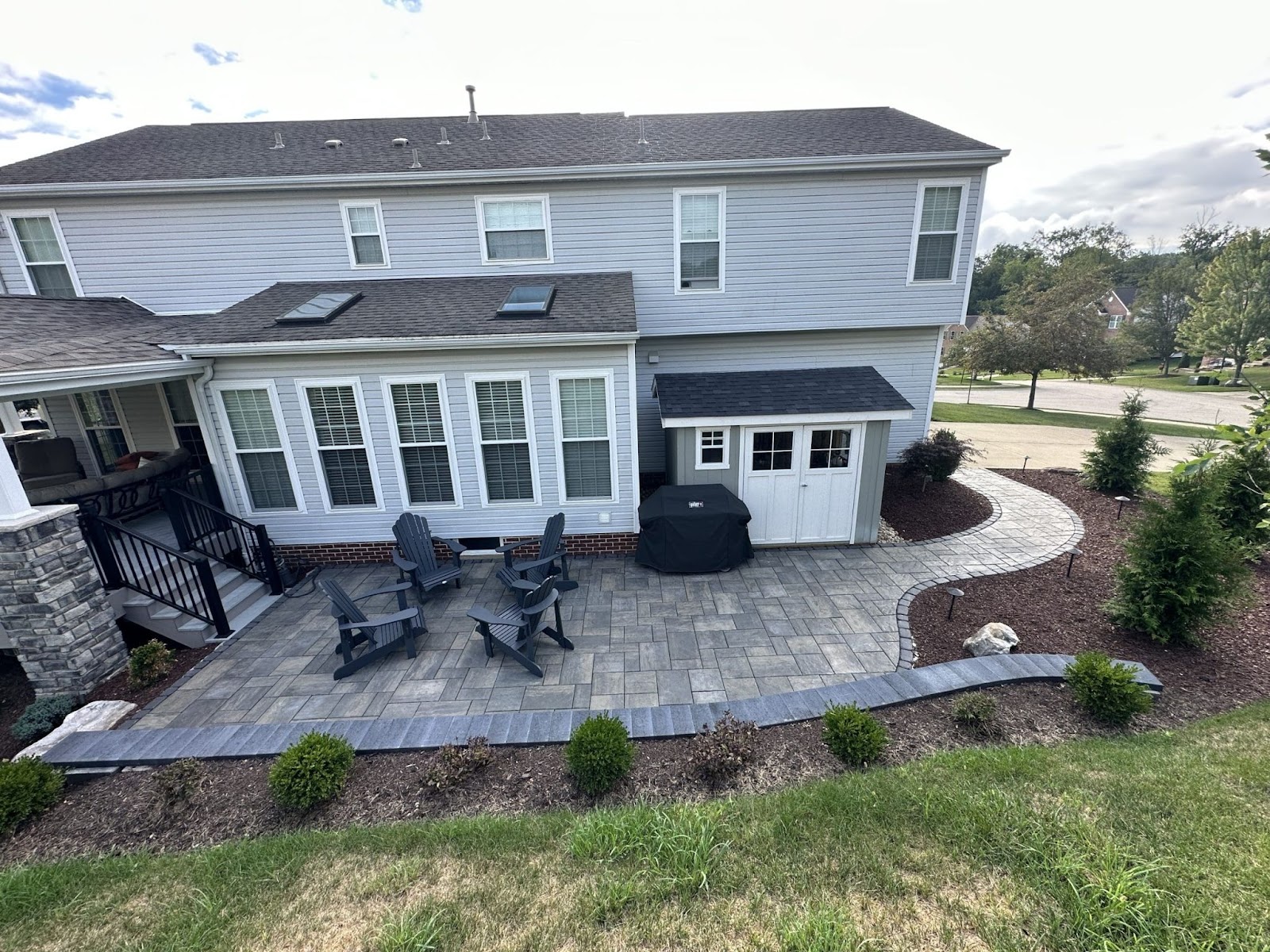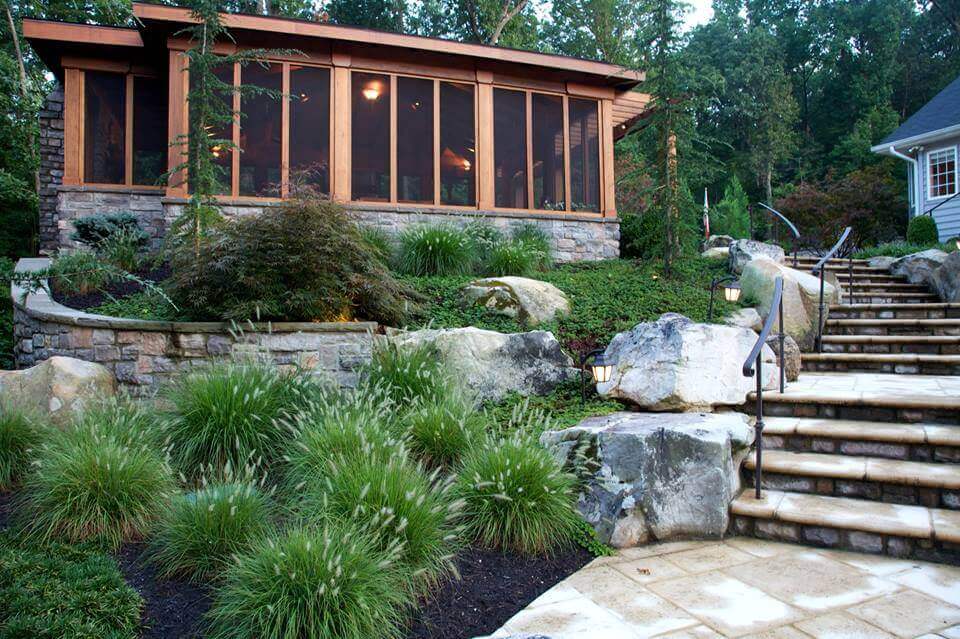
Thinking about turning your outdoor space into a cozy haven with a new patio or a charming walkway? Before you go knee-deep into the world of hardscaping, it’s crucial to understand the permitting and regulatory requirements in Pennsylvania. So, here are the key aspects to ensure your project runs smoothly and stays within the legal boundaries.
Permit Requirements: A Project-Specific Approach

Unlike some states, Pennsylvania doesn’t have a one-size-fits-all system for hardscaping permits. The rules vary based on your project’s specifics and your local municipality’s regulations. Let’s break down the requirements for different scenarios:
1. Simple Projects
For smaller projects like modest-sized paver patios, short walkways, or cozy fire pits, you may not need a permit. However, it’s a smart move to check with your local municipality first to be sure.
2. Larger Projects
If your plans involve more substantial structures like tall retaining walls (typically over 4 feet), pergolas, decks, or outdoor kitchens, you’re likely to need building permits. These permits ensure that your project is structurally sound and follows safety codes.
3. Drainage Considerations
Altering natural drainage patterns may require a stormwater permit. This step helps protect water quality and prevents potential flooding issues on your property.
4. Zoning Ordinances
Zoning regulations govern what structures are allowed in specific areas. Make sure your project aligns with your property’s zoning designation to avoid any unexpected complications.
Navigating the Permitting Process
1. Municipal Websites
Start your journey by checking your local municipality’s website. Most municipalities have dedicated sections outlining permitting requirements. This is your go-to source for accurate and up-to-date information.
2. Department of Environmental Protection (DEP)
Visit the DEP website for resources on stormwater management regulations and permitting processes. It’s a valuable tool to ensure your project aligns with environmental guidelines.
3. Professional Assistance
When in doubt, seek professional guidance. Consulting a landscape architect, engineer, or contractor familiar with local regulations can save you time and ensure your project adheres to all necessary requirements.
Additional Considerations
1. Timelines
Be aware that permitting processes can take weeks. Plan ahead and apply well in advance to avoid unnecessary delays in your hardscaping project.
2. Fees
Permit application fees vary based on the type of project and municipality. Be prepared for these associated costs when budgeting for your hardscaping endeavor.
3. Inspections
Most projects require inspections at various stages to ensure compliance with codes and regulations. Factor these into your project timeline to prevent any surprises.
Turning Dreams into Reality with Maust Landscaping
By understanding and adhering to the permitting and regulatory landscape for hardscaping projects in Pennsylvania, you can transform your dream outdoor space into a reality. If you have any questions or uncertainties along the way, don’t hesitate to reach out to your local municipality or seek professional guidance.
At Maust Landscaping, we understand the complexities of Pennsylvania’s hardscaping regulations. Our team is here to help you navigate the process smoothly, offering budget-friendly options to bring your vision to life.
Contact us today at (412) 771-1475, and let’s turn your outdoor dreams into a beautiful and enriching reality. We’re proudly located in Pittsburgh, Pennsylvania, ready to assist you on your hardscaping journey!
